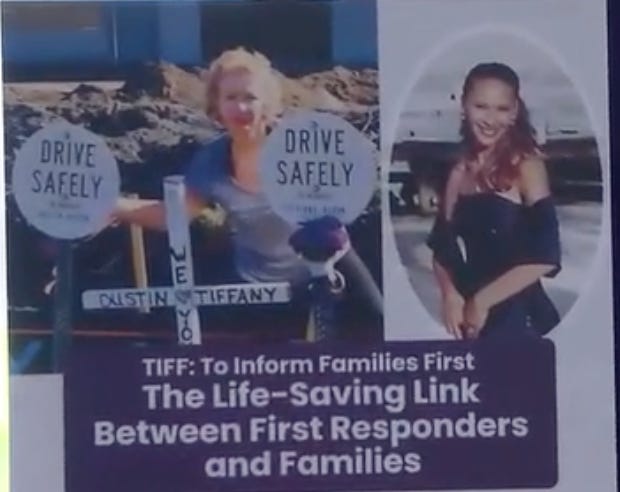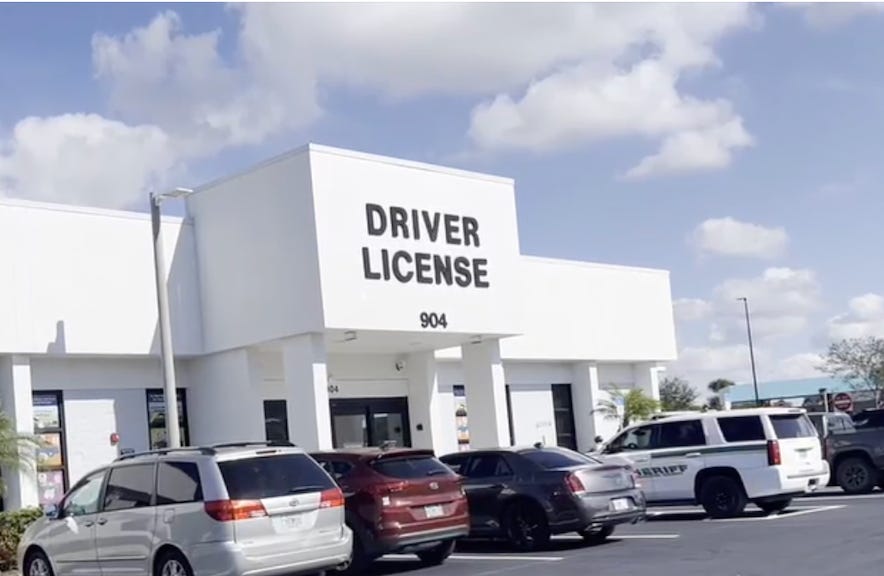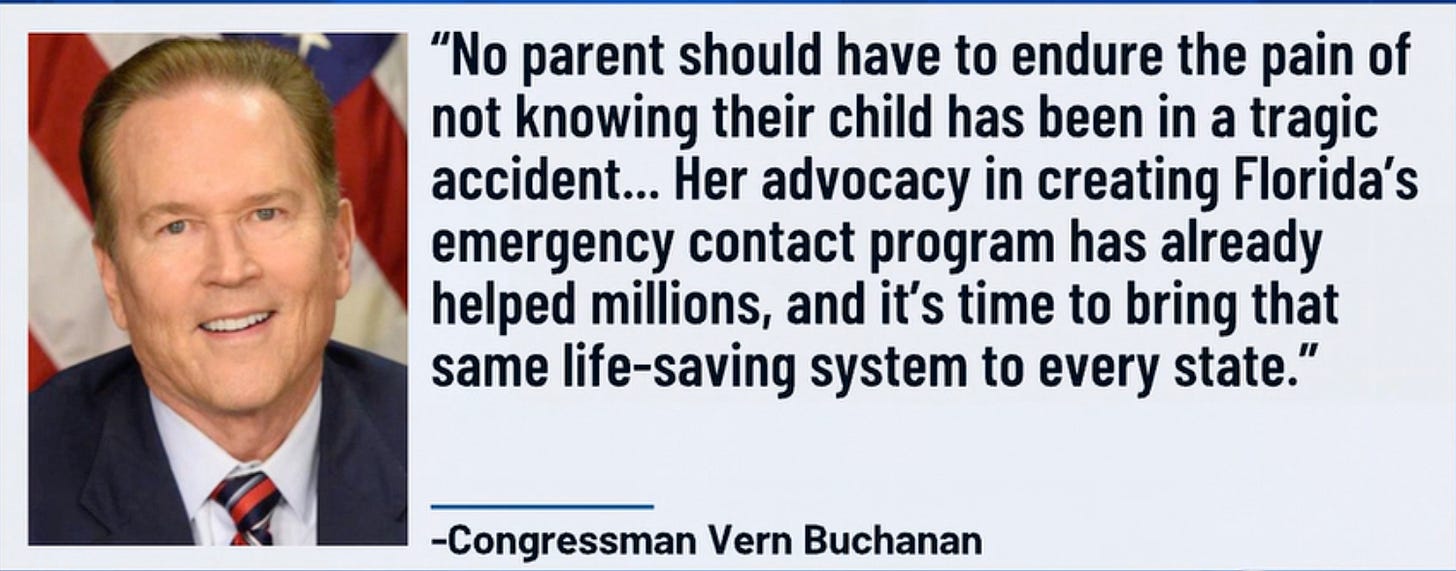Buchanan Backs Nationwide Emergency Contact Law Inspired by Bradenton Mother’s Mission
Nearly twenty years after a tragic crash claimed the life of her daughter, Bradenton mother Christine Olson is seeing her advocacy move onto the national stage. Congressman Vern Buchanan is introducing the To Inform Families First (TIFF) Act, legislation that would ensure every state in the country provides emergency contact information on state-issued IDs, such as driver’s licenses and permits.
The mission began in December 2005, when Olson’s daughter, 22-year-old Tiffany Olson, was hit and killed by a car while riding on U.S. 19 in Palmetto. Despite Tiffany being pronounced dead at 7:01 p.m., it took six and a half hours before her mother was notified.
The experience propelled Olson into action. She began searching for a way to ensure that families would not face the same painful delay. Realizing that Tiffany had only her driver’s license in her pocket at the time of the crash, Olson envisioned a system where emergency contacts could be directly linked to a state-issued ID.
Olson brought her idea to then-State Rep. Bill Galvano and the Florida Department of Highway Safety and Motor Vehicles. By October 2006, Florida officially launched the TIFF program, allowing residents to register emergency contacts that law enforcement can access with a quick scan of a license or ID. Olson became the first person to enroll, marking the start of what she hoped would become a nationwide standard.
Today, 18 states have adopted similar initiatives, and about 22 million Floridians are registered. Law enforcement agencies routinely use the system to contact families during emergencies ranging from traffic crashes to medical crises.
Buchanan’s TIFF Act aims to expand that system nationwide. The bill would provide federal grants to state DMVs to develop secure, voluntary databases of emergency contact information connected to driver’s licenses and state IDs. Supporters say the legislation could dramatically speed up the notification of families after serious accidents.
The congressman emphasized the importance of the measure, stating that swift access to emergency contact information can make a critical difference for families during life-altering events.
Olson hopes the bill will become law by October 2 of next year—the 20th anniversary of the TIFF initiative. For her, the effort has always been about turning grief into change and ensuring that no other family waits hours to learn that a loved one has been hurt or killed.
“I want the whole United States to shine purple,” she said, referencing TIFF’s signature color. “We are now registered.”



